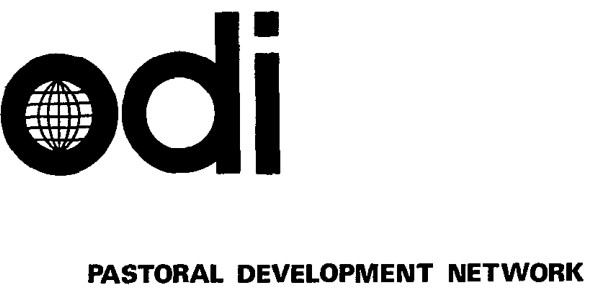Location
The Pastoral Development Network represents a world-wide network of researchers, administrators and extension personnel interested in the issues of pastoralism and rangelands. Between 1976 and 1996 the PDN was managed by ODI and published regular mailings including newsletters and a wide ranging series of papers on pastoralism and related issues. There were also a number of other related publications.
Members:
Resources
Displaying 21 - 25 of 33Towards better woodland management in the Sahelian Mali
This article begins with an investigation into woodland management in Mali and moves onto a discussion of some of the fundamental practical problems associated with a major part of forest policy in Mali.
A solution to desertification: holistic resource management
It is clear from the failure of our efforts in many countries to halt the desertification process - deserts are now advancing at a rate of nearly 15,000,000 acres a year worldwide (Worrall 1984) (that something was missing in our knowledge of the problem). Four discoveries have been made that enabled us to design a simple holistic model to manage resources successfully in a sustained and economic manner.
The decline of Lahawin pastoralism: Kassala Province, eastern Sudan
This article investigates the encroachment on pastoralist grazing land in Sudan (as a result of the mechanised farming in the Sudan).
Enclosure if the East African rangelands: recent trends and their impact
This article discusses the enclosure of rangelands and registration of exclusive rights to grazing by individuals or groups of pastoralists. This trend has been increasing greatly over the last twenty years. This occurs because:it is encouraged by governments, planners and multi-lateral donor agencies in an attempt to 'rationalise'the use of rangelands.
The communal grazing cell experience in Botswana
This article discusses the zoning of 'Communual Areas' on tribal grazing land in Botswana, in which communities retain collective land rights.From the experience gained during six years of attempting to establish and operate communal grazing cells a number of conclusions can be drawn in relation to co-operative action and development project approaches and in the communal areas of Botswanahe communal grazing cell scheme was badly designed.



